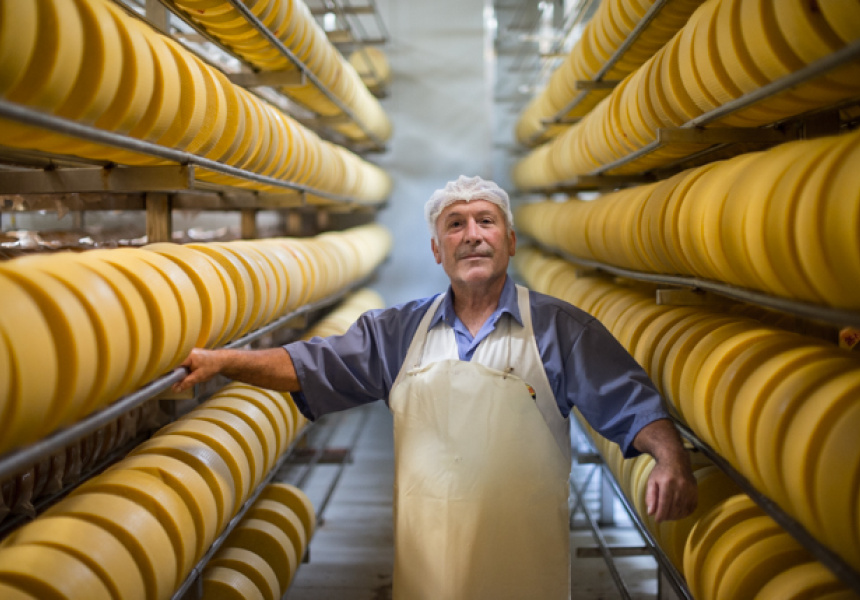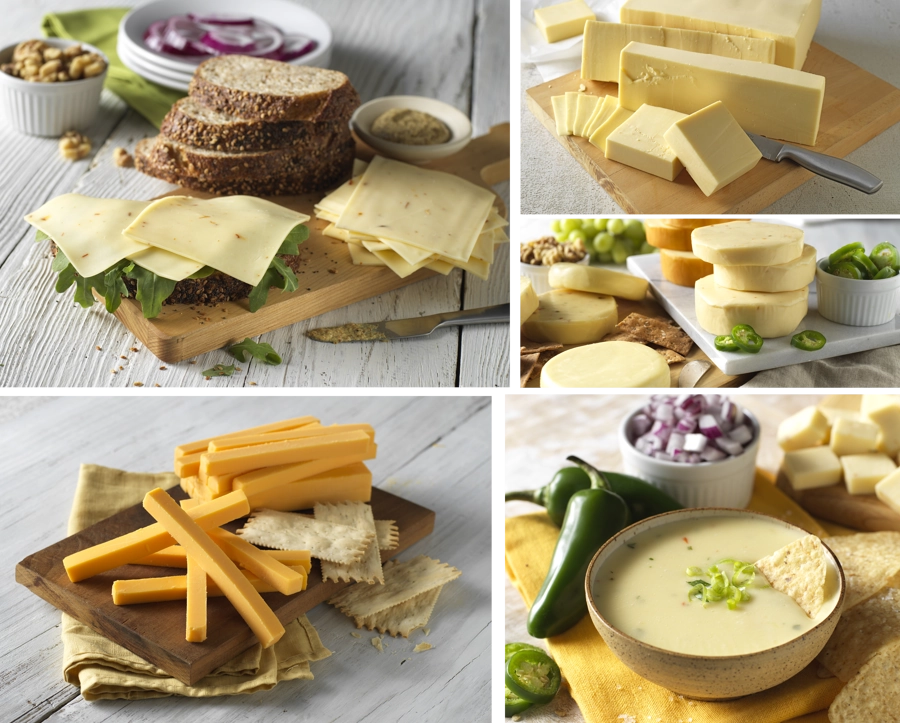Explore the Leading Cheese Factory Melbourne for Fresh Creations
Explore the Leading Cheese Factory Melbourne for Fresh Creations
Blog Article
An In-Depth Look at Cheese Manufacturing: Components, Methods, and the Future of Artisan Cheeses
The detailed procedure of cheese production is an interesting convergence of art and scientific research, where premium milk, rennet, and particular bacterial cultures act as foundational components. Conventional methods, such as salting and aging, are matched by contemporary innovations that reply to evolving consumer preferences. As the market progressively focuses on sustainability and openness, the future of artisan cheeses guarantees to show both heritage and progression. Comprehending the nuances of these methods raises engaging questions regarding the instructions of cheese production and its effects for high quality and credibility. What lies ahead in this advancing landscape?
Key Ingredients in Cheese Production
A range of crucial components play a crucial duty in cheese production, each adding to the end product's flavor, texture, and personality. The primary component in cheese is milk, which can originate from various sources, consisting of cows, goats, and sheep - cheese for sale online. The kind of milk utilized substantially affects celebrity's taste and consistency; as an example, cow's milk typically produces creamier cheeses, while goat's milk usually creates tangy ranges
One more vital component is rennet, an enzyme utilized to curdle the milk, dividing it right into curds and whey. The resource of rennet can be animal, vegetable, or microbial, each presenting distinctive attributes to the cheese.
Salt not only boosts the taste but additionally acts as a preservative, inhibiting the development of unfavorable bacteria. In addition, different flavoring representatives, such as herbs, flavors, or even smoked wood, can be included in develop one-of-a-kind artisanal cheeses. With each other, these components develop the structure of cheese manufacturing, establishing the stage for diverse and rich cheese ranges.
Typical Cheese-Making Strategies
Using typical cheese-making techniques, artisans all over the world protect time-honored methods that have actually been passed down with generations. These techniques often stress using premium, in your area sourced milk, which is central to the one-of-a-kind flavors and textures of artisanal cheeses. The procedure usually starts with the careful home heating of milk, followed by the addition of societies and rennet to facilitate coagulation.
Once the curds form, they are cut, allowing whey to drain, a critical step that affects moisture web content and appearance. Salting is a vital aspect of this process, boosting taste while additionally acting as a chemical.
Aging, or affinage, is one more important part, throughout which cheeses create their particular fragrances and preferences. Craftsmens may use specific maturing environments, utilizing humidity and temperature controls to refine the cheese's profile. The commitment to these standard techniques not only supports regional economic situations yet additionally adds to the rich diversity of cheese ranges found around the world, commemorating cultural heritage and artisanal workmanship.
Modern Advancements in Cheese Production
Exactly how have technological advancements changed cheese manufacturing in current years? The integration of modern innovation has transformed both the efficiency and top quality of cheese manufacturing. Automation in various phases of the procedure-- from curd formation to packaging-- has enhanced uniformity while lowering labor expenses. For example, automated curd reducing and stirring systems permit exact control over texture and dampness levels, essential factors affecting the last item.
Furthermore, improvements in microbiology have allowed cheesemakers to pick particular microbial societies and enzymes, optimizing taste accounts and enhancing life span. The usage of sensor modern technology for keeping an eye on fermentation problems has additionally ended up being common, enabling real-time modifications to preserve ideal environments for cheese aging.

These innovations not just boost the quality and sustainability of cheese manufacturing yet additionally empower artisan manufacturers to preserve standard flavors while embracing modern-day effectiveness. As technology remains you can try here to evolve, the future of cheese production looks promising, blending practice with advancement.
The Function of Terroir in Cheese
In the world of cheese manufacturing, terroir plays a crucial role in specifying the distinctive qualities of various cheeses. Terroir, a French term typically related to red wine, encompasses the environmental elements that influence agricultural products, consisting of soil composition, climate, and local plants and animals. In cheese-making, the unique attributes of the area where the milk is sourced can impart details tastes and appearances to the end product.
For example, the grazing conditions of dairy animals considerably affect the milk's composition, influenced by the kinds of grasses and natural herbs readily available in a particular location. This differs not just between countries however also in between areas within the same nation. Additionally, the microbial communities present in the environment add to the fermentation procedures, leading to diverse accounts in flavor and aroma.
Cheeses such as Roquefort, Parmigiano-Reggiano, and Cheddar exhibit how terroir can shape their identities, making them distinctive and commonly secured by geographical signs. As manufacturers progressively acknowledge the relevance of terroir, there click over here is a growing focus on sourcing regional ingredients and preserving traditional methods, guaranteeing that each cheese really shows its beginning.

Future Fads in Craftsmen Cheeses
A noteworthy change is taking place in the artisan cheese industry, driven by advancing consumer choices and technological improvements. Increasingly, customers are being attracted towards unique, top notch products that emphasize both sustainability and regional sourcing - cheese factory melbourne. This trend is triggering artisan cheesemakers to introduce, concentrating on small-batch manufacturing and using conventional strategies while incorporating modern technology to improve quality and security
Additionally, there is an expanding passion in plant-based and alternate dairy items, pressing conventional cheesemakers to discover brand-new opportunities, such as cashew or almond-based cheeses. This change not only caters to dietary restrictions however likewise lines up with environmental worries concerning pet farming.
Furthermore, transparency in sourcing and manufacturing processes is ending up being extremely important. Consumers are extra educated and demand traceability, motivating manufacturers to adopt more clear labeling methods and involve in storytelling that highlights their approaches and values.
Conclusion
In conclusion, the complex process of cheese production combines traditional techniques with contemporary developments, leading to a diverse range of tastes and textures. The focus on premium ingredients and the impact of terroir underscore the virtuosity associated with cheese production. As the market evolves, a focus on sustainability and openness will likely shape the future of artisan cheeses, accommodating a significantly discerning customer base that values authenticity and craftsmanship in milk products.
Report this page